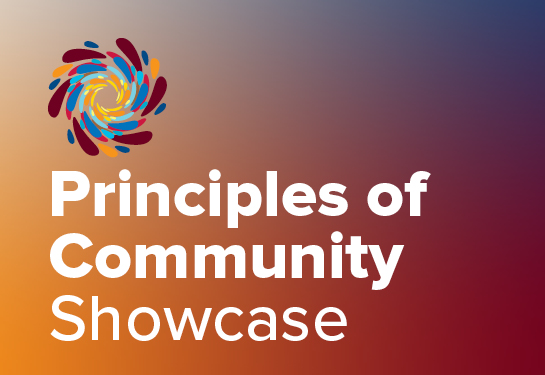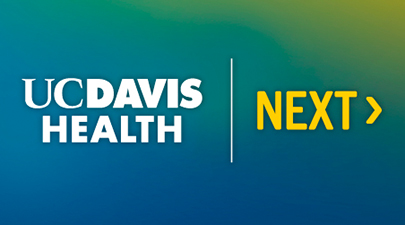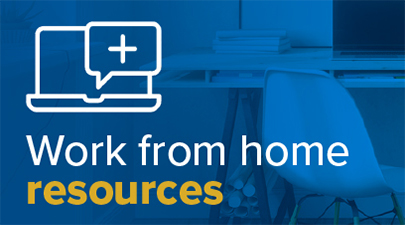Leadership message: Mental Health Awareness Month
Dear Colleagues,
May is Mental Health Awareness Month, a tradition established in 1949 by Mental Health America to shine a light on the importance of mental health with the goal of increasing understanding, compassion, and support for people grappling with mental illness.
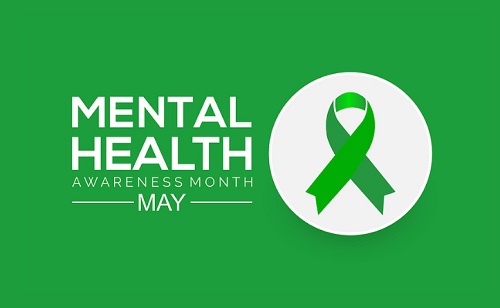
All of us will be impacted directly or indirectly by mental health concerns at some point in our lives. In any given year, nearly 20% (one in five) of American adults meet the diagnostic criteria for a mental disorder, and 46% of Americans will meet the diagnostic criteria for a mental health condition at some point in their lives (NIMH, 2021). Despite the prevalence of mental health conditions, the stigma associated with mental disorders continues to create barriers for people seeking help.
We are living in unusually stressful times and there are a variety of recent global and local stressors that have impacted all of us (e.g., COVID, world conflict and unrest, politics, identity-based hate, climate change, etc.). Our uncertainty and lack of control over these larger forces piles onto our “normal” set of life stressors. Rates of anxiety, depression, substance abuse, and suicidal ideation have increased over the past four years, and the statistics are especially concerning for youth, BIPOC individuals, members of the LGBTQIA+ community, and anyone with intersecting minoritized identities (National Center for Health Statistics, 2024). In 2022, a study found that 73% of American adults reported feeling overwhelmed by world crises (Mental Health America, 2024).
Maintaining good mental health is critical to our overall health and well-being. While mental health conditions are common, the good news is that they are also typically manageable and treatable.
What can we do to support and maintain our mental health?
We should start with prioritizing the basics of self-care, including sleep, nutrition, hydration, and regular exercise. Life is inherently stressful, and we are living in a world of uncertainty and strife. Hence, we must be intentional about our relaxation practices, and we all need to cultivate strategies we can use to calm ourselves, such as meditation, low-stress hobbies, time in nature, music, art, reading, gardening, yoga, unplugging from technology/social media, etc.
Purposefully developing ways to reduce negative thinking and improve our outlook is also important for overall mental health. Regular reflection on the aspects of our lives for which we are grateful is one such strategy. Identifying our negative thoughts and finding ways to challenge or redirect them can also support our mental health. One of the most important factors in promoting resilience and well-being is positive social support and connecting with people in our lives who are kind, compassionate, and nonjudgmental.
When should people seek professional help to support their mental health?
Sometimes our coping toolkit is insufficient to help us manage the various stressors impacting us. It’s OK to acknowledge that fact. Most of us would not try to heal a broken leg or a heart attack on our own, yet we feel compelled to resort to do-it-yourself approaches to manage our depression or anxiety.
If you or a loved one are experiencing severe or distressing symptoms that last two weeks or more, such as sleep troubles, appetite/weight changes, difficulty getting out of bed because of mood, concentration/attention problems, loss of interest in usually enjoyable activities, trouble completing tasks, or feelings of irritability, frustration, or restlessness, you should consult a mental health professional for help.
Many people begin the process of seeking mental health care by reaching out to their primary care providers and this is a fine starting point. For employees at UC Davis Health, you can access a mental health professional by reaching out to Academic & Staff Assistance Program, and our team of licensed clinicians can help with assessing the situation, helping you determine the best strategy to address the issue(s), providing brief counseling, and offering referrals to additional campus and/or community resources as needed. Our services are free, confidential, voluntary, and available in-person or remotely. Call us at (916) 734-2727 or email us at ASAPHealth@ucdavis.edu to schedule an appointment.
For students on our campus, Student Health & Counseling Services offers comprehensive mental health support for health sciences students. To set an appointment or access a clinician urgently, students can call (530) 752-0871 24 hours a day, 7 days a week. Students can also text “RELATE” to the Crisis Text Line, 741741, for UC Davis students and you will be connected to a trained volunteer crisis counselor (also 24/7).
If you are in a crisis: If you or someone you care about is having thoughts of self-harm or harming others or is showing signs that they may be a danger to themselves or others, it is important to seek help urgently by calling 911 and/or going to the nearest emergency room. If you are experiencing a mental health crisis, call, chat, or text the National Suicide Prevention Lifeline at 988 to speak with a trained crisis counselor 24 hours a day, 7 days a week.
How can we help others? Probably the first step is to educate ourselves about mental health conditions, treatment options, and available resources on our campus and in our community. We can challenge stigma by speaking inclusively and respectfully about mental health. Reaching out for help when we are struggling and encouraging others to do the same is a step in the right direction, as is supporting and promoting organizations that provide mental health care. We can work to create safe and supportive spaces where people can talk about mental health openly, freely, and without judgment.
A therapist friend of mine says that “we are all working on something.” Please join me in being kind, supportive, and understanding of that reality as we celebrate Mental Health Awareness Month together.
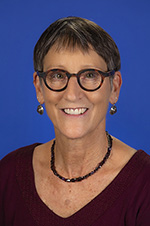
Yours in health,
Carol E. Kirshnit Ph.D.
Director, Academic and Staff Assistance Program
Licensed psychologist
UC Davis Health
References:
- https://www.cdc.gov/nchs/covid19/pulse/mental-health.htm.
- https://mhanational.org/sites/default/files/MHM/2024/toolkit/2024-Where-to-Start-Toolkit.pdf.
- https://www.nimh.nih.gov/health/statistics/mental-illness.
- National Center for Health Statistics. S. Census Bureau, Household Pulse Survey, 2020-2024. Anxiety and Depression.

